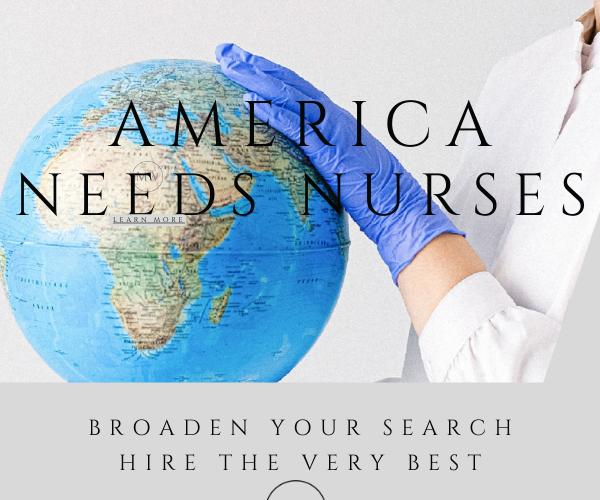

The U.S. is projected to experience a shortage of Registered Nurses (RNs) that is expected to intensify as Baby Boomers age and the need for health care grows. Compounding the problem is the fact that nursing schools across the country are struggling to expand capacity to meet the rising demand for care.
Before the COVID-19 pandemic, the United States was already experiencing a nursing shortage due to an aging workforce, increasing demand for healthcare services, and limited nursing school capacity. The pandemic has exacerbated this shortage, as nurses are experiencing burnout, illness, and retirement, while demand for healthcare services has skyrocketed.
According to the American Nurses Association (ANA), the United States will need to produce over 1 million new registered nurses in 2023 to meet the growing demand for healthcare services. The ANA also reports that Kansas and Missouri, two states experiencing a nursing shortage, have a projected deficit of nearly 6,000 and 12,000 registered nurses by 2025 respectively.
In light of the growing need for nurses, compounded by the 2020 pandemic, healthcare facilities have been forced to turn to travel nurses. Costing 3-4 times the amount of staff nurses, this stopgap measure is not sustainable in the long run.
The Kansas Legislature recently published the following request for policy makers on the topic of temporary travel nurses. “We need accountability for healthcare staffing agencies who continue to charge Medicaid providers more than triple the going wage for essential healthcare workers during a horrendous workforce shortage and frequently restrict workers freedom to join a provider full-time. Staffing agencies continue to warp the health care labor market through non-compete clauses and contract buy-outs in the tens of thousands. All meant to prevent nurses and nurse aides from returning to work at health care facilities.”
Healthcare facilities need to invest in long-term plans to ensure a steady stream of hiring and meet the demands of tomorrow.
According to the National Library of Medicine, “The value of foreign-educated health care professionals to destination countries’ health systems and source countries’ economies is becoming increasingly apparent…’studies suggest that US healthcare is increasingly reliant on the skills they bring and the care they provide’.”
There are several steps to the immigration process. With Midwest Immigration Law, healthcare facilities can solidify a steady stream of incoming nurses. A healthcare partner can expect their first immigrant nurses to be able to care for patients within 12 – 18 months. Invest in the future. Contact Midwest Immigration Law today.